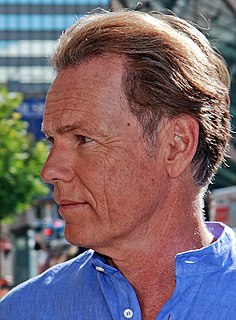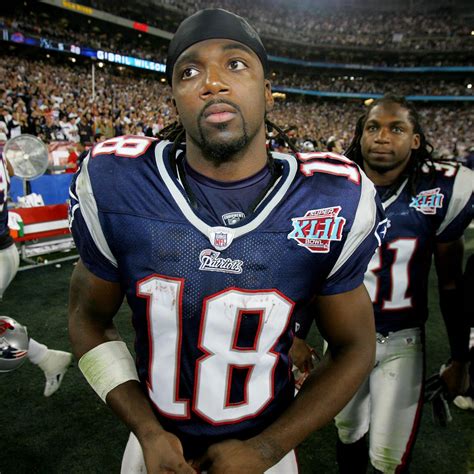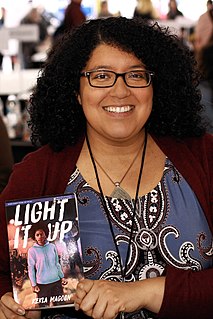A Quote by C. J. McCollum
Related Quotes
If you want to pontificate, I'm certainly willing to pontificate. That's why Joely was laughing because you don't know what you asked for. Malcolm Gladwell, in his newest book "David and Goliath," writes about how sometimes things that we think of as handicaps often times are just the opposite. Or the reverse is also true.
Many of our students want to do what they have done and that has made them successful thus far in their lives: play by the rules, and do what is expected. But as much social science research and writing by Malcolm Gladwell, among others, make clear, the rules are mostly created by those already in power so obtaining power often entails standing out and breaking rules and social conventions.
Malcolm Gladwell was on TV talking about wanting to have college football banned. It's interesting just because of him even bringing the topic up. Sooner or later, whether people are for or against it whether they like it or not, that is going to be a discussion that is going to come up. That's how it all starts - someone brings up the inquiry: Should we continue to let our children play Pop Warner, high school, and college football? Ten, 15, 20 years from now, who knows where that conversation is going to be.
Elements within Malcolm's X own entourage, some of them were very angry with some of the changes that had occurred with Malcolm. One source of anger, curiously enough, was that - was the tension between MMI and OAAU, that the MMI, the Muslim Mosque Incorporated, these were women and men who had left the Nation of Islam out of loyalty to Malcolm, but then Malcolm continued to evolve rapidly.
I have asked James Shabazz, I've asked other people who are members of the OAAU, Herman Ferguson and others, what led to that disastrous decision [that the guards didn't carry weapons]? James Shabazz said to me with a shrug, you just didn't know Malcolm. Malcolm was adamant, and that whatever Malcolm wanted, that's what we just did.
Last year, the journalist Malcolm Gladwell conducted a survey of chief executive officers of Fortune 500 companies for his book Blink. He discovered that while in the US population 14.5 per cent of all men are 6ft (1.83m) or taller, among CEOs of Fortune 500 companies the proportion is 58 per cent. And while 3.9 per cent of American adults are 6ft 2in or taller, almost a third of the CEOs were that tall.
We like to think of the '60s as Martin Luther King, Jr. and Malcolm X and a little bit of friction - no, there were all of these different groups. There was the Student Nonviolent Coordinating Committee (SNCC), the Black Panthers, Martin and Malcolm, but also the Whitney Youngs of the world, the Bayard Rustins of the world.

































